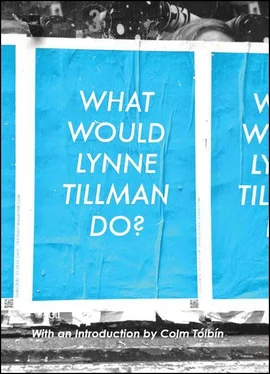The ironist Wharton might have appreciated, in her perverse way, the secondary or minor position she has attained. (Perhaps in the way Deleuze and Guattari appreciate minor literature) Ironically, undidacitally, Wharton teaches that separate isn’t equal; difference shouldn’t be but usually is hierarchical, and change in any establishment or tradition is like her sentences, slow.
The author would like to thank Gregg Bordowitz and Kenneth Frampton for their invaluable help in the writing of this essay .
A brief, preliminary version of this essay appeared in Conjunctions: 29, Tributes, Fall 1997 (pp. 122–125); it was entitled “Edith Wharton: A Mole in the House of the Modern .”
NOTES
2. Edith Wharton , The Writing of Fiction (New York: Touchstone, 1997); first published in 1924 .
3. Sigmund Freud, “Contributions to the Psychology of Love,” in Sexuality and the Psychology of Love, ed. Philip Rieff (New York: Collier Books, 1963), 63 .
4. Edith Wharton , The Letters of Edith Wharton, ed. R.W.B. Lewis and Nancy Lewis (New York: Scribner’s, 1988), 450-1 .
5. Sigmund Freud, “On Narcissism: An Introduction,” in A General Selection from the Works of Sigmund Freud, ed. John Rickman, M. D. (New York: Doubleday, 1957), 116 .
6. Charles Baudelaire , Intimate Journals, trans. Christopher Isherwood (London: Picador, 1990), 14 .
7. Adolf Loos, “Ornament and Crime,” in Adolf Loos: Pioneer of Modern Architecture, ed. Ludwig Munz and Gustav Kunstler (New York: Prager, 1996), 226-8 .
8. R.W.B. Lewis, “Introduction” to Edith Wharton, The House of Mirth (New York: Bantam, 1984), viii .
A cesspool is not just a metaphor. In the suburbs, it’s under the driveway or front lawn, and, sometimes, during long, hot summers, it seeps. What escapes is an olfactory embarrassment that reminds the neighborhood of stuff no one wants to talk about. Dominique Laporte’s History of Shit reveals and revels in dirty, unmentionable stuff, digging beneath the beautiful to find the unspeakable it hides. Laporte sniffs bad smells, waxes rhapsodic about the odoriferous body and explores the division between private and public.
The story of shit is older than human beings, of course, but Laporte begins his account in 1539, with the proclamation, in France, of two edicts. One, the Ordinance of Villers-Cotterets, stated that “henceforth justice would be administered and civil documents and notarized acts registered in the French language.” The other edict, Laporte writes in characteristically florid style, “we need exhume. for its substance, and in so doing, may as well abandon ourselves, albeit briefly, to the strange beauty of its language.” It forbade “all emptying or tossing out into the streets and squares of [Paris] and its surroundings of refuse, offals, or putrefactions, as well as all waters whatever their nature. ” Of the coterminous moves toward purging “maternal French” of Latin and Parisian streets of shit, Laporte comments: “We have known since Barthes that ‘when written, shit does not smell.’. No doubt beautiful language has more than a little to do with shit, and style itself grows more precious the more exquisitely motivated by waste.”
This playful treatise, wryly translated by Nadia Benabid and Rodolphe el-Khoury, links asshole to mouth, excrement to language. Laporte claims that efforts to contain, deodorize and sanitize the body’s products have shaped language and consciousness. “To touch, even lightly, on the relationship of a subject to his shit,” Laporte writes, “is to modify not only that subject’s relationship to the totality of his body, but his very relationship to the world and those representations that he constructs of his situation in society.” Representations, such as language, must be censored, elegant phrases and stylistic flourishes invented to cover and disguise, like literary kitty litter, the human capacity to foul and be foul. “But the incapacity of this system to manage its own filth is lucidly betrayed by its intrepid fantasy of an elimination so complete it leaves no trace of waste.”
To this futile end — the fantasy of wastelessness in which “the hygienist is a hero”—excrement was taxed, by emperors Vespasian and Constantine; urine was drunk; and feces were turned into medicine and cosmetics. What streamed out of us could make money or make us healthy and beautiful. (The truism “Waste not want not” finds its supreme explicator in Laporte.) In a wackily convincing way, History of Shit traces society’s efforts to legislate and handle human waste, to reduce the shame produced by what leaks from our orifices, even to transform shit into gold. “The place where one ‘does one’s business’ is also the place where waste accumulates. To each his shit! proclaims a new ethic of the ego decreed by a State that entitles each subject to sit on his own ass on his own heap of gold.”
Laporte, a French psychoanalyst, died in 1984 at the age of thirty-five. Along with Barthes, not surprisingly, his guiding lights were Freud and Lacan. The former “defined order, cleanliness, and beauty. as the cornerstones of civilization,” while the latter stated: “Civilization is the spoils: the cloaca maxima.” For these two theorists, the terror of our own mucky, dark holes, the abject fear of never climbing out of the primeval sewer, propelled the march to civilization — the costuming of human animality.
As a character from the anarchic ’60s should, Laporte maintains an ironic posture toward the civilizing drive. “The privatization of waste,” he proclaims in his inimitable fashion, “a process whose universality is not a historical given, made it possible for the smell of shit to be bearable within the family setting, home to the closest social ties.” In other words, the family, the basis of society, established an enduring bond only after first being able to stand each other’s shit — something R.D. Laing failed to mention in his critique of that neurotic social unit.
Reading History of Shit is both pleasurable and disgusting — and it is also about that ambivalent duo, pleasure and disgust. Laporte, who studied the hidden mission of style, also had style in abundance — a definite way with words — and his tongue is often in his cheek. My recourse to that flaccid metaphor drolly underscores his idea that language and the body are bound together — often gagged — in secret, inviolable secretions or nuggets. See, it’s nearly impossible to discuss History of Shit without sliding into bathroom humor, which is by definition immature. A baby’s interest in its shit precedes its ability to speak. So if eschatology is the study of last things, scatology should be the study of first things, since shit precedes language and death. In any case, History of Shit could transform all language scholars into Howard Stern. It certainly confirms this reader’s sense that it would be less embarrassing to admit to having murdered someone than to having farted in a “good” restaurant.
It’s very difficult to find apartments in Amsterdam, an old and small city. Sidonie and her friend were trying to find a place to live and they placed an ad in the newspaper, giving my place of work to call. They asked if I would mind taking calls for them. I said I wouldn’t.
My Dutch was hardly adequate; it enabled me to buy food and panic when times called for it. They had advertised for two rooms. I knew two rooms to be twee kamers .
Читать дальше












